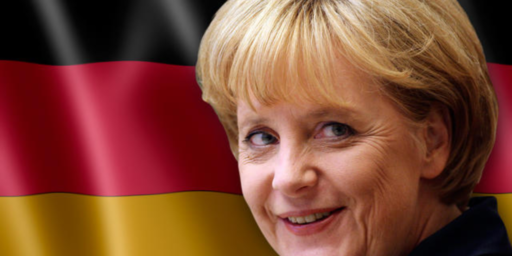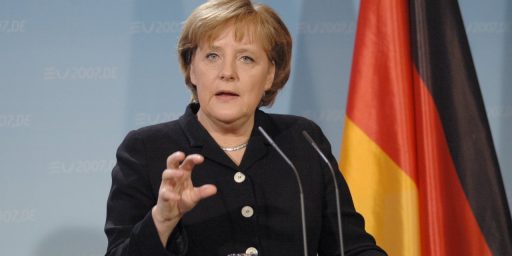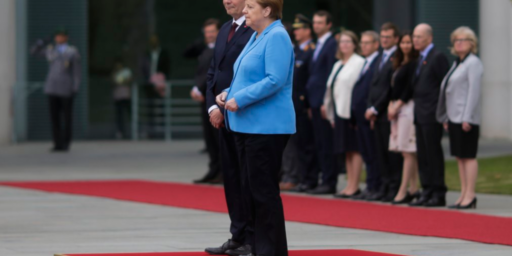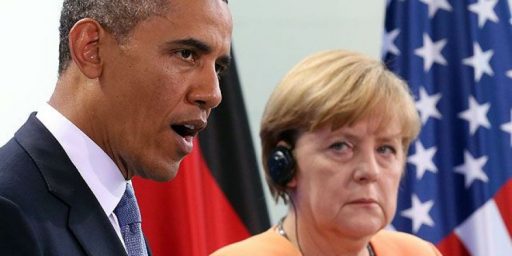Gender Big Factor in German Chancellor Race
Angela Merkel, a member of the conservative Christian Democratic Union, is the first woman to run for chancellor in Germany. Her gender may trump party identification for many voters.
Gender dominates Germany chancellor race (AP)
As female voters weigh their choices in Germany’s Sept. 18 parliamentary elections, some are wondering whether the chance to put a woman at the helm of their nation is more important to them than the party she represents. In Germany’s political system, a voter’s decision is traditionally more influenced by the party and its platform than the individual candidate. But Angela Merkel is the first woman to run for chancellor – and even feminists are suggesting that some women will vote for her because of her gender, rather than her views.
“For the first time in the history of Germany a woman is campaigning for the office of chancellor. And that is not supposed to play a role for us women?” Germany’s leading feminist, Alice Schwarzer, said in an editorial. Sabine Dudek, a trainer at Commerzbank, who normally supports Gerhard Schroeder’s Social Democrats or the Greens, said Merkel would definitely get her vote. “I think that we have to show solidarity in this situation,” Dudek said. But her colleague at a women’s conference in Berlin, Sonja Alberts, wasn’t so sure that gender and politics should mix. “In Germany, we vote for the party, not for the candidate,” said Alberts, who added that she was still undecided.
Merkel, 51, became the conservative Christian Democrats’ first female chairman in 2000 and was picked earlier this year as their candidate for chancellor. More than half of Germany’s 62 million eligible voters are women and they are largely credited with helping return Schroeder to office in 2002. But recent state elections have shown women are inclined to support female candidates, regardless of party. A poll of 1,004 men and women by the Forsa institute for West German Radio showed that only 35 percent believe it is important to have a woman as chancellor, while 85 percent said their decision was not influenced by a candidate’s gender.
Merkel, who has for years shunned discussion of her role as a woman, recently has begun reaching out specifically to a female audience, seeking to soften her image as a twice-married professional woman with no children.
We’ve known for years that female candidates have an advantage, in that many more women will vote for her because of her gender than men will vote against her because of her gender. But that polling has been in U.S. races, which are very candidate-centric because of the nature of our system.
Germany, on the other hand, has parliamentary government. One doesn’t vote for chancellor in the same way one votes for president. Rather, the leader of the party that wins the most seats in the Bundestag becomes chancellor, assuming they have a majority. Given the staggered voting system they use, that’s almost a given.




